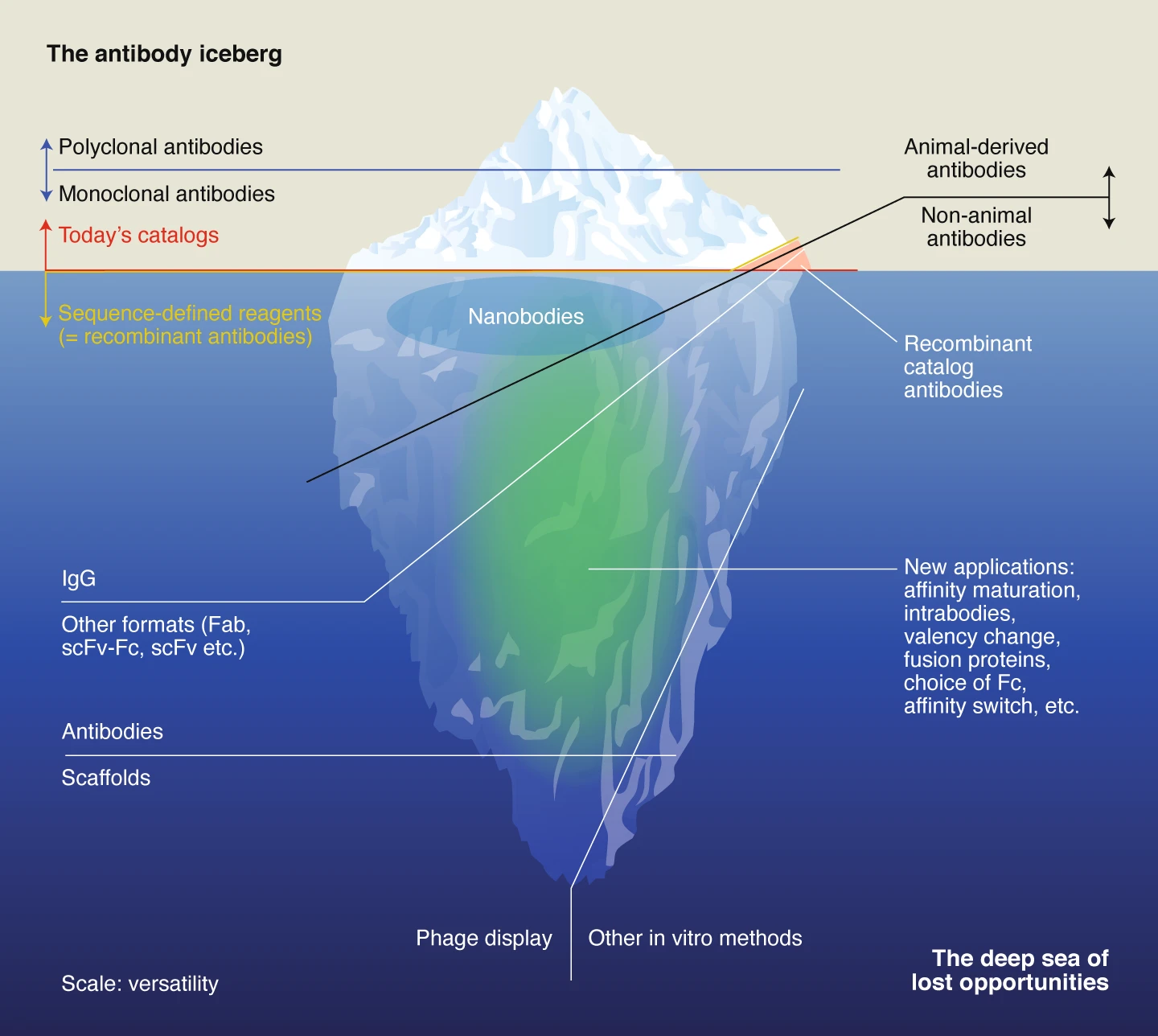This full length article describes the findings of the ESAC working group, annex 1, JRC Science for policy report . Antibody generation using animal immunization presents scientific and ethical concerns. From a scientific standpoint, animal-generated antibodies can suffer from batch-to-batch variation, low specificity, high background and undefined identity of the binding reagent — all of which can compromise research reproducibility. From an ethical standpoint, the European Union (EU) core values are to replace, reduce or refine animal use in research and improve the quality of research. Advanced in vitro technologies for antibody generation not only offer greater versatility and reproducibility over animal immunization, but also alleviate ethical concerns. Yet for many researchers and antibody reagent manufacturers or suppliers, non-animal-based approaches remain underutilized — with a vast portion of the entirety of molecules in the ‘antibody iceberg’ remaining under their sonar
Gray, A., Bradbury, A.R.M., Knappik, A. et al. Animal-free alternatives and the antibody iceberg. Nat Biotechnol (2020)

Only a tiny tip of the potential of antibody generation methods are now exploited. This tip comprises visible, widely utilized animal immunization-based methods. The submerged fractions comprising in vitro recombinant antibody generation methods present a wealth of opportunities yet to be exploited to their full potential and lacking visibility outside the development of therapeutics

